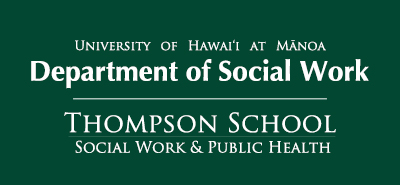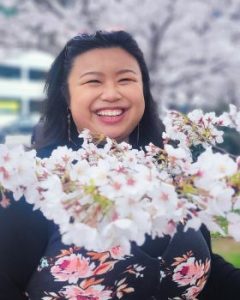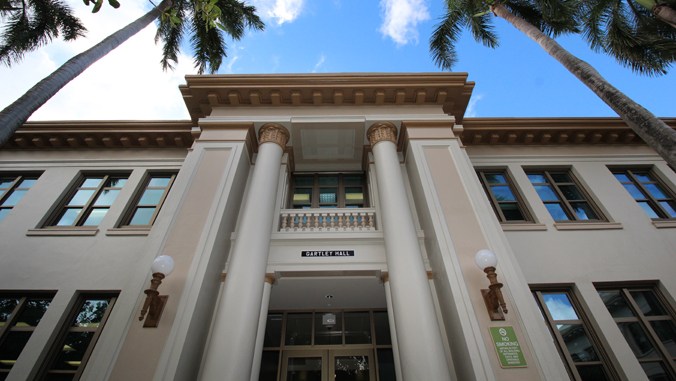
Fulbright scholar: Kamea Macusi
 When Kamea Macusi decided to pursue her MSW at UH Mānoa, she could never have imagined that just a few years later she would be working as a Fulbright scholar in the Jeollanam-do region of South Korea.
When Kamea Macusi decided to pursue her MSW at UH Mānoa, she could never have imagined that just a few years later she would be working as a Fulbright scholar in the Jeollanam-do region of South Korea.
Macusi, who graduated with her master’s degree in 2022, has been given countless opportunities to help others and grow in her professional skillset through the Fulbright program. She currently works as an English teaching assistant at two middle schools in Yeosu, South Korea.
Even as a teen, Macusi knew she wanted to work in a vocation where she could advocate for others. For over a decade, she has followed the Black Lives Matter movement and witnessed the struggle for underrepresented voices to be heard. This issue was a motivating factor in Macusi’s decision to pursue social work.
“I realized just how much advocacy was needed in order to disrupt the status quo and curate good change for the world, and I knew that I wanted to go beyond just sitting within office walls. I wanted to impact the world.”
Macusi is passionate about education, specifically within the realm of psychology. As an MSW student, she specialized in Behavioral Mental Health and worked with Hawai’i’s Department of Education and the YMCA. Her experiences familiarized her with teaching, and Fulbright has allowed her to pursue this skill further.
Macusi’s interest in behavioral health prompted her to conduct independent research on the topic of suicide. She was disturbed to see that South Korea has one of the highest suicide rates in Asia, the highest among the 38 Organization for Economic Cooperation and Development countries. Further research yielded that certain cultural norms such as collectivism, pressure to perform, and academic competition, influenced suicide risk, specifically in adolescents. With the help of other colleagues, including Thompson School faculty Seunghye Hong, Macusi published her findings in, “Identifying Risk Factors, Exploring, and Proposing Interventions to Address Suicidality in South Korean Adolescents,” which is in press to be published later this year in the Journal of Safety and Crisis Management.
After she finishes her Fulbright program at the end of the year, Macusi plans to return to her home state of Texas to continue working in advocacy. She credits her Fulbright experience to her studies at UH Mānoa.
“It was because of UH Mānoa that I found the confidence to teach. The program was introduced to me through my studies, and Fulbright alumni in my cohort encouraged me to apply. A month ago, I was reviewing my old class notes and came across a note from one professor who had dedicated an affirmation to me. ‘Kamea,’ they said, ‘You are a teacher,” and they continued on to say that even if I did not become a ‘proper’ teacher, I carried the spirit of teaching within me. Now, approximately four years later, I can say they were right.”



